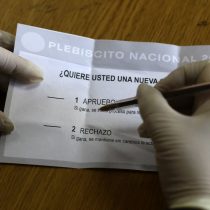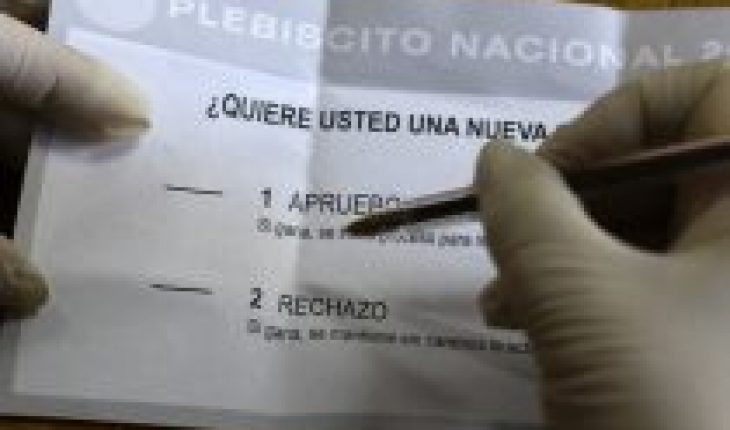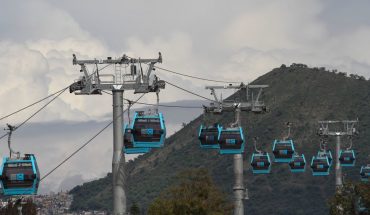
The fundamental unity from which Chile emerges are its peoples. In a lobby of 1810 the first timid gesture of autonomy is given. Then, already in the declaration of Independence of 1818, O’Higgins emanates from “the peoples” the authority to take such an emancipatory step. The peoples, grouped in the three original provinces, continued to play a relevant role throughout the first period of our country’s history, which was devoted to the federal laws of 1826 and the Constitution of 1828. A decentralized and democratic country was beginning to take its first steps, hand in hand with the predominant liberalism in the enlightened classes of the country, twinned with the natural libertarian spirit of “peoples”.
But the conservative counter-offensive didn’t wait. A coup led by monopoly Portales managed to turn a part of the Army into shock forces to roll back democratic advances through civil war and impose, with the Constitution of 1833, a strongly centralized and authoritarian regime.
Since then the punishment of the peoples and their basic organization, the municipalities, began, which would last all the rest of the nineteenth and twentieth centuries. To this day, municipalities are the poor relative of the state organization. Poor, not only because of the large lack of resources of most of them, but also poor because of their poor legal consideration. They are located at the end of the Constitution, almost falling off the text and are also considered as a mere “local administration”, depriving them of the character of “government”, which is recognized at the national, regional and provincial levels, even if the latter two still have until today an Executive appointed by the central power.
But the social outburst and above all the pandemic have in fact repositioned municipalities on the national political landscape. The convening of municipalities to a citizen consultation on a constituent process was the impetus and anteroom for the agreement of the 15N in Congress. Today, two mayors appear as favorites in the presidential polls. In the pandemic, it was the mayors who became an effective counter-treatment of the negligence and recklessness of the national government, for example, when today’s trial Minister Mañalich insisted on resuming classes. And all this mayoral prominence has been very cross-cutting, proving that, more and less, mayors are often much more in tune with citizenship than the National Government or Congress.
The New Constitution that we hope the people of Chile will order to elaborate in the next plebiscite of October 25, should account for this new municipal prominence and enshrine it legally. It is a question of putting upside down the current centralist structure of the Chilean state.
In order of treatment, the Constitution should establish the communes as Chile’s fundamental political unit. Give them back all their dignity, naming municipalities as “communal governments” and establishing financing mechanisms that ensure a minimum percentage of public investment to be defined at the communal level.
By the way, this must be accompanied, already at the legal level, by a strengthening of democracy, transparency and probity control in municipalities. Although it hurts to recognize it, everything usually has a dark side, not just the moon. Maintaining long cacicazgos in municipalities has been one of the main factors for municipalities to compete with uniformed police and the Armed Forces at the highest levels of corruption.
The challenge for future municipal governments is gigantic. Chile’s strength in the face of predictable new health or environmental threats will be played in the territories. It is there that it is possible to build resilient communities, which reconnect with the nature in which they are located, can preserve living conditions as beneficial as possible. Communication technologies, on the other hand, offer the possibility of relocating activities, especially in the field of services. Today someone can telework in a courthouse in Santiago from their home in Combarbalá. Homes become productive and educational spaces for many people. What a wonderful possibility to decongest suffocated cities and revive communities throughout Chile! But this requires a local environment that provides the essential possibilities for recreation, socialization and recreation.
The threats and opportunities before the country are immense. This requires empowered and democratized new municipalities. The constituent process creates the conditions for building these municipalities, lifting the punishment imposed on peoples since the centralist and authoritarian Constitution of 1833. But this pre-needs a renewed citizen prominence, which marks the bones of constituents, generating territorial instances of information and feedback. No blank checks. Combining local deliberation and citizen mobilization, the Constitutional Convention may be prevented from being hijacked by factual powers. A Constitution for communes and communes is possible.
The content poured into this opinion column is the sole responsibility of its author, and does not necessarily reflect the editorial line or position of El Mostrador.





